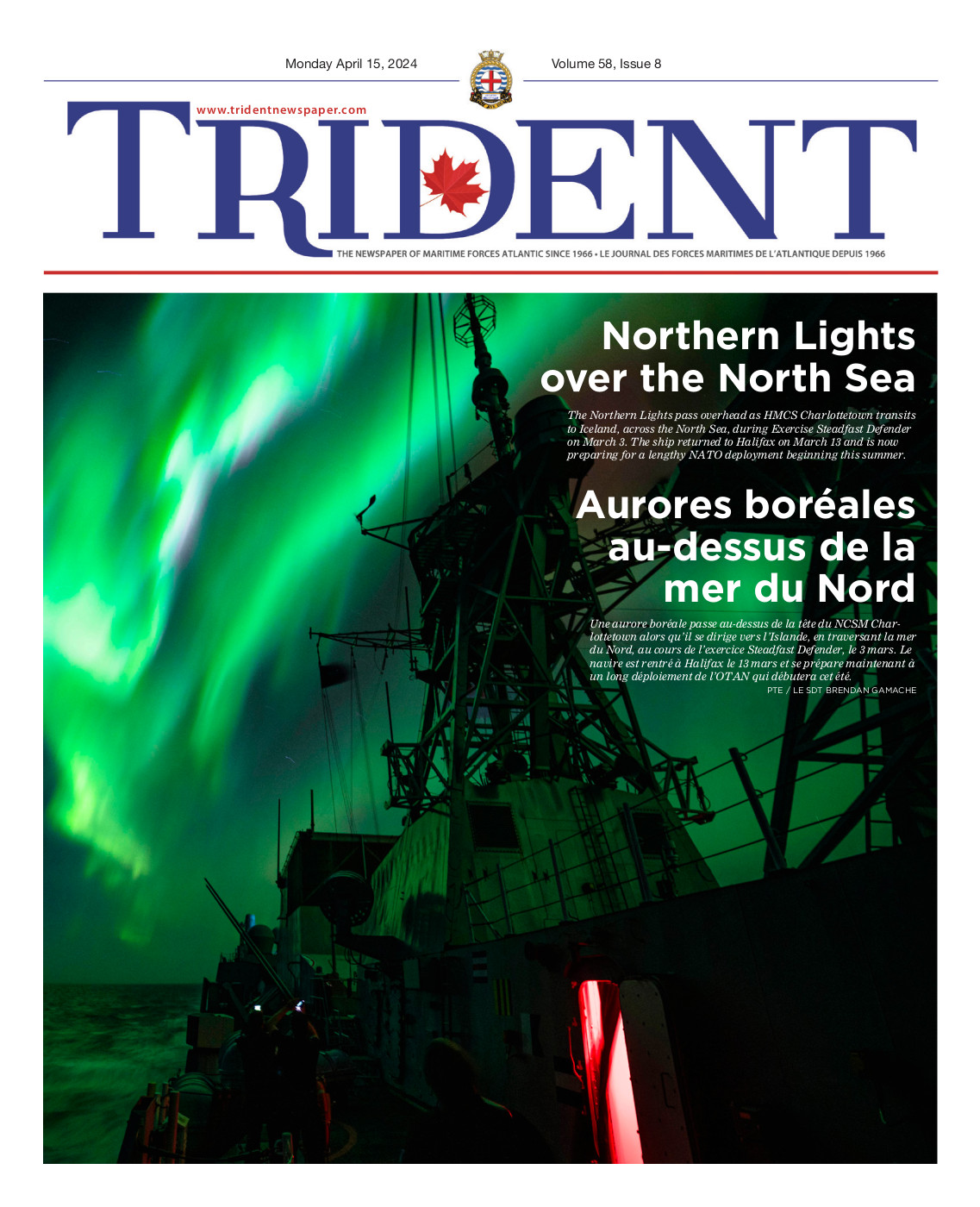
Photo credit: Submitted
MARTECH trade marks new chapter for RCN sailors
By Ryan Melanson,
Trident Staff
As the RCN prepares for the delivery of the first Arctic Offshore Patrol Vessel in 2018, marking the beginning of a new era of modern Canadian ships, changes will also be needed to modernize training, occupations and the way naval business is conducted.
One of those changes is the standing up of the Marine Technician trade (MARTECH), which combines elements of the Marine Engineer, Hull Technician and Electrical Technician trades under one new career path, with different specializations as sailors move up the ranks. The process has been underway behind the scenes for some time, but sailors are now starting to see changes and complete training that relates to the new trade.
PO2 Eric Caron, a hull tech aboard HMCS Fredericton, was the very first to begin the process. He recently earned his Machinery Watchkeeping Certificate, which allows him to perform engineering roundsman duties, and he’ll soon begin working on his Certification II package. Roundsman is a job for junior engineers, combing through the engine spaces to make sure machines are running properly, and the training PO2 Caron is undergoing is normally for sailors below his rank. It’s part of the effort to have the new MARTECH sailors all share a common engineering base, regardless of their specialty.
“If you don’t know the basics and you try to start at the top of the ladder, you’re going to be missing a big chunk of what you need, so I see it that way,” PO2 Caron said.
Other hull techs in Fredericton have begun similar training to meet the new trade requirements, as will many more sailors across the RCN in the near future. The trade was officially stood up on May 1, and the first training for new sailors under the MARTECH banner will also begin this month.
The major change is the result of an occupational analysis that began in 2014, looking at the three legacy engineering trades as well as the Naval Reserve Marine Engineer Systems Operator trade.
“The OA team looked at all the jobs in each trade for commonalities in training and commonalities in tasks, looking for ways to build a new structure, so that we can reduce training, increase people’s scope and skills, and create more well-rounded technicians and equipment operators,” said LCdr Mark Bartek, a Naval Technical Officer Career Manager in Ottawa, and one of the leads on the MARTECH implementation plan.
Any new trades will be geared towards the future AOPS and Canadian Surface Combatant Ships, and the advanced technology and smaller crew sizes that will come with them, meaning a broader base of skills for new sailors. One of the goals is also to reduce personnel shortages across the fleet.
“If we have a bigger pool to draw from, ideally we’ll see fewer people peer-jumped from ship to ship to meet sailing schedules and operational requirements. The hope is that it results in more stability for the sailors,” LCdr Bartek said.
The bigger skillset will also be more closely aligned with Transport Canada or IMO engineering and electrician standards, so skills may be more transferable if members transition to the civilian workforce.
And as the Navy moves further toward the future fleet, there’s a possibility of more occupational changes and modernizations being introduced through the coming years. Occupational analyses are currently underway into aspects of the Boatswain, Steward, and Naval Communicator trades, while another study is looking at combat trades like NCI Ops, NES Ops and Sonar Ops. Recommendations from those analyses aren’t expected for another 18 months to two years.
Lessons have been learned from the two years of work leading up to the implementation of the MARTECH trade, and communication will be key during the remainder of the MARTECH process and with any future occupational changes. Teams will try to be as open as possible about the process, engage with training to get people the skills they need to keep up with any changing job requirements, and have answers ready for questions about important things like promotions and pay structures.
“This has a huge impact on people and their careers, and it creates uncertainty for them, we know that. So one of the things we can do is try to lessen any impact on the sailors,” LCdr Bartek said.





